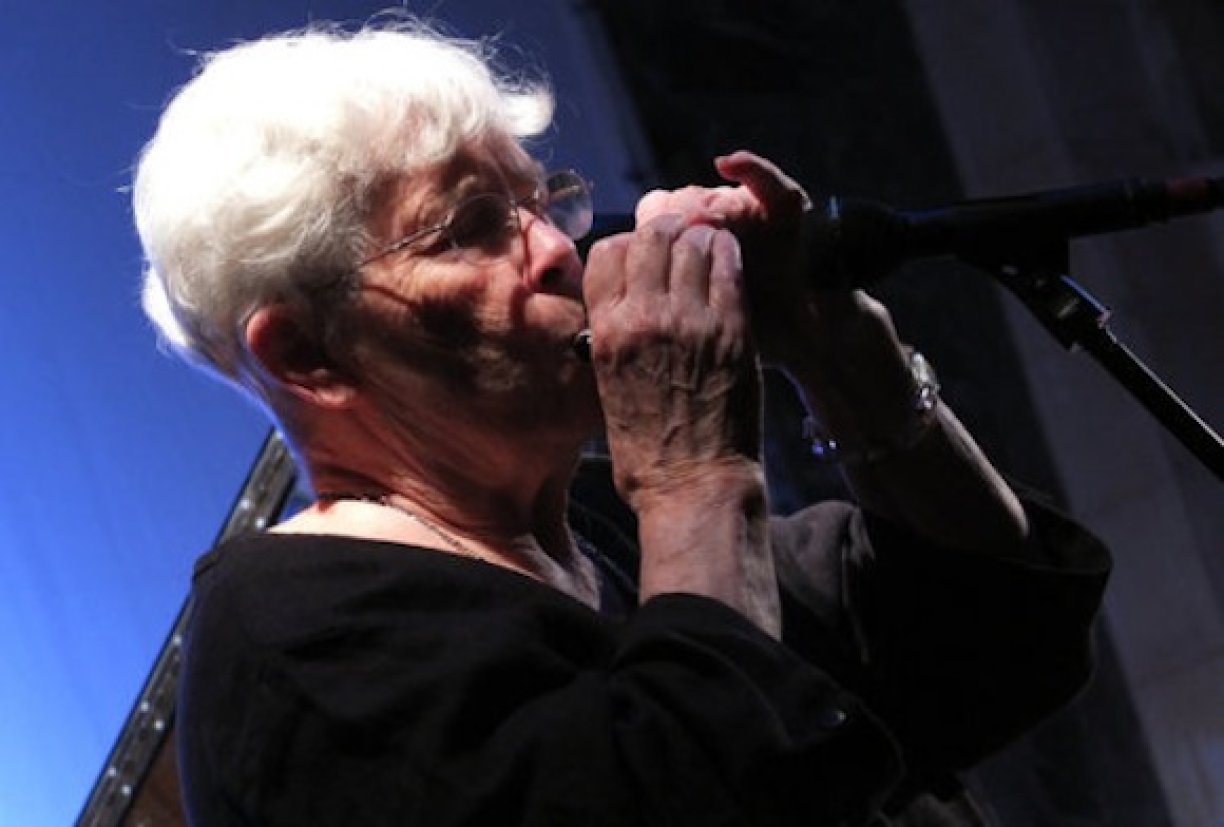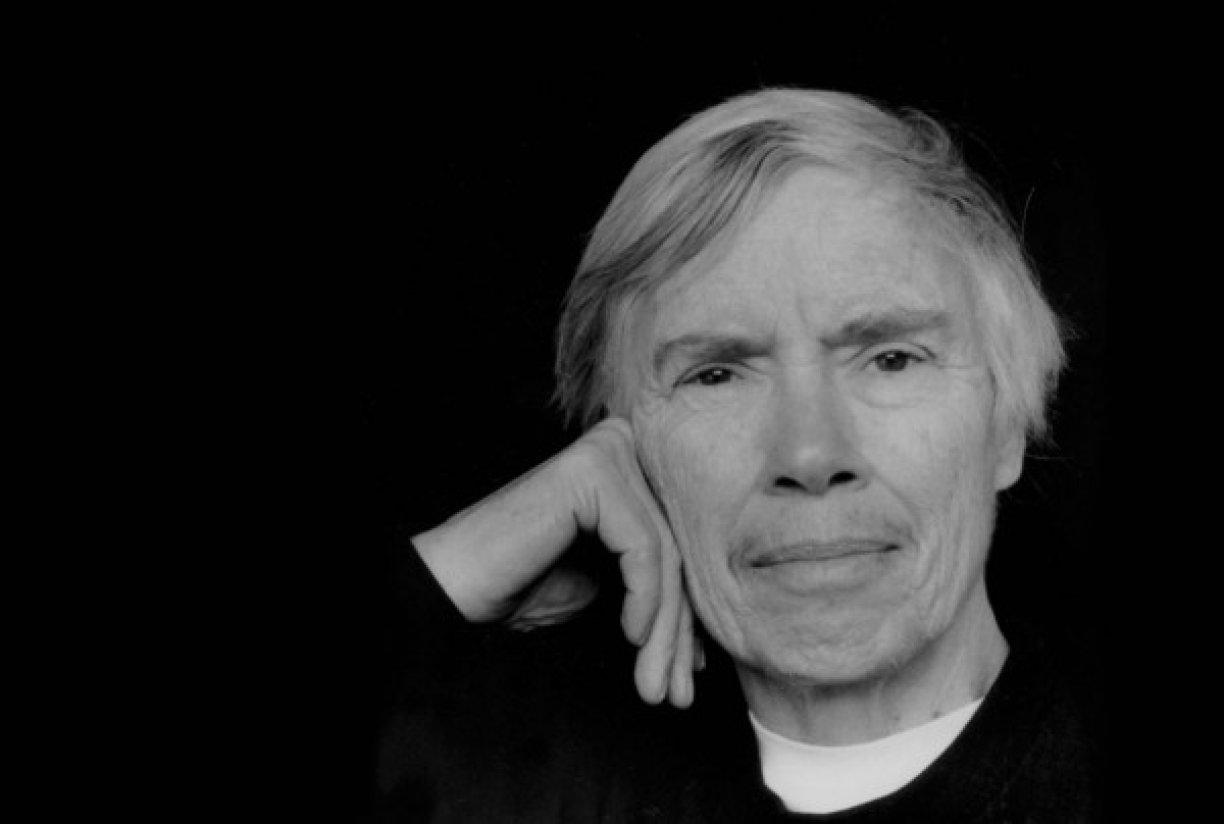Pauline Oliveros Tribute at Darmstadt Institute
by Steve Smith
in the New York Times, 6/3/12
on ISSUE’s "Pauline Oliveros 80th Birthday Celebration", June 1, 2012
Darmstadt Institute, an annual new-music festival founded in 2008 by the New York composers Nick Hallett and Zach Layton, has become one of the city’s most reliable sources for concerts as entertaining as they are edifying. Equally important, the series is a crowbar meant to pry open a rigid canon and admit outliers whose work, however obscure, has proved significant and durable.
This year’s festival, hosted by the Issue Project Room in downtown Brooklyn, opened on Friday evening with a tribute to Pauline Oliveros, a composer whose exposure is modest relative to the breadth of her influence. Even for marginalized artists, a milestone birthday is a ready trigger; Ms. Oliveros, who turned 80 on Wednesday, is being celebrated widely this year.
That she has eluded canonicity is unsurprising. Part of her renown is based on pioneering electronic works more widely discussed than heard. (“Reverberations: Tape & Electronic Music 1961-70,” a lavish 12-CD box newly issued by Important Records, offers an imposing remedy.) Much of her subsequent work, bundled in terms like “Sonic Meditations” and “Deep Listening,” has more to do with forging a participatory art based in political, philosophical and metaphysical concerns than with bestowing masterpieces to posterity.
Both those notions were reflected in Darmstadt’s program: against all odds, a workable overview packed into just over two hours. Ms. Oliveros contributed to an opening invocation, blowing folksy harmonica with an extemporaneous recitation by Ione, a writer and Ms. Oliveros’s longtime partner, and Miguel Frasconi’s pealing glass goblets and bowls.
“Tree/Peace,” uncommonly using near-conventional notation, formed a sequence of dreamy rustle and sway. Anmari Wili, a Swiss pianist whom Ms. Oliveros was keen to introduce, played with gloves on; you could almost believe that her muted touch alongside the violinist Jason Hwang and the cellist Alex Waterman was a result. “Horse Sings From Cloud,” played by Mr. Frasconi with Jim Altieri on violin, translated a maxim about volition into a pulsating mote of meditative focus. (The maxim reads: “Sustain a tone or sound until any desire to change it disappears. When there is no longer any desire to change the tone or sound, then change it.”)
Suzanne Thorpe and Alex Chechile, armed with open-reel tape decks and stacked oscillators, recreated Ms. Oliveros’s “I of IV,” an alien soup of brays, squeals and subsonic rumbles. “Noise/Silence,” enacted in gurgles, pings and scrapes by Mr. Frasconi, made its point through simple contrasts, thoughtfully deployed.
Two performers offered original tributes to Ms. Oliveros. In “Sound Kitchen,” Fast Forward, a composer and multimedia artist, made a merry clatter of metal utensils deftly juggled and twirled. Ms. Wili’s contribution was “For Pauline,” a stagy, precious mix of incantation, ritualistic gestures and simplistic keyboard figures.
Ms. Oliveros returned for the concert’s end, leading the audience in a collective exhalation that wafted and rippled like a prismatic cloud. Presented afterward with a cheesecake topped by 80 candles, she showed that breath control also has its practical applications.
Darmstadt Institute runs through June 29 at the Issue Project Room.


